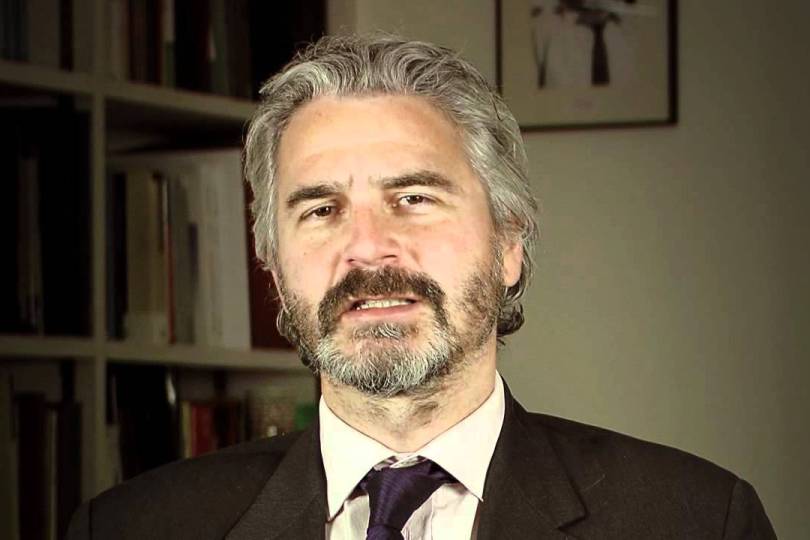Prof. Simon Glendinning (London School of Economics) gave a lecture on “European Philosophical History and Faith in God A Posteriori”

Prof. Glendinning is one of the leading philosophers in the United Kingdom today. Among his best-known publications are the books: Europe’s Promise (2017), Derrida: A Very Short Introduction (2011), In the Name of Phenomenology (2007), The Idea of Continental Philosophy (2006), and On Being with Others: Heidegger-Derrida-Wittgenstein (1998). Recent articles include: “Nietzsche’s Europe: An experimental anticipation of the future” (2016), “Derrida and the Philosophy of Law and Justice” (2016), “Varieties of Neoliberalism” (2016), “Settled-there: Heidegger on the Work of Art as the Cultivation of Place” (2014), “Cavell and Other Animals” (2015), “The End of the World Designed with Men in Mind” (2013), “Three Cultures of Atheism: On Serious Doubts about the Existence of God” (2013), “Wittgenstein and Heidegger and the ‘Face of Life’ in Our Time” (2013), “The Heading of a Problem: On the Future of the Model of Two Models of Philosophy” (2012), “Argument All the Way Down: The Demanding Discipline of Non-Argumento-Centric Modes of Philosophy” (2010). In addition to being the Professor of European Philosophy at the LSE, Prof. Glendinning is the Director of the UK’s Forum for European Philosophy.
On Tuesday, 13 December 2016, Prof. Glendinning met with the Philosophy Club to discuss Valery’s “Crisis of Spirit.” And a spirited discussion ensued.
On Wednesday, 14 December 2016, Prof. Glendinning gave a talk on “European Philosophical History and Faith in God A Posteriori”. He argued that the world in which our lives is marked by the opacity of our time. He asked, therefore, how might we attempt to come to terms with the opacity of our time? Prof. Glendinning argued that “coming to terms with our time” is a project of making sense, that is, finding the words that will make sense of our time as a time that does not make much sense—for there was a time, another “nowadays,” not recently but not so long ago, say two hundred years ago, when most Europeans would not have been so perplexed about the sense of their world or time. He then showed, following Wiggins, that the difference – “impossible to exaggerate” – between us today and that earlier time in Europe lies in the fact that the earlier time was marked by a widespread “faith in God conceived a posteriori,” a faith that Europeans in our time have decisively lost. Thus, he sought to clarify what was lost here, and what this implies about our understanding of Europe today.